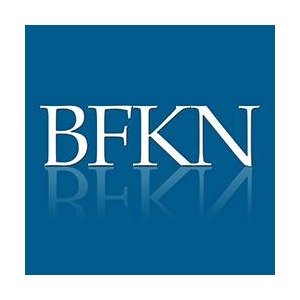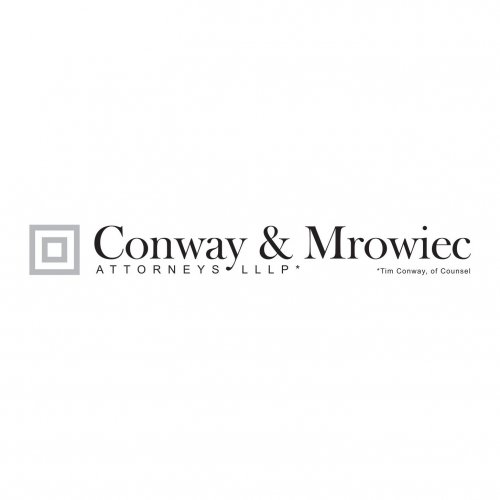Best Nonprofit & Charitable Organizations Lawyers in Illinois
Share your needs with us, get contacted by law firms.
Free. Takes 2 min.
Or refine your search by selecting a city:
List of the best lawyers in Illinois, United States
About Nonprofit & Charitable Organizations Law in Illinois, United States
Nonprofit and charitable organizations play a vital role in Illinois, serving public needs in areas such as education, healthcare, arts, social services, and advocacy. These organizations are structured and governed by both state and federal laws to ensure that they operate ethically, transparently, and in line with their chosen missions. In Illinois, nonprofit law covers the establishment, governance, tax status, fundraising activities, regulatory compliance, reporting, and dissolution of nonprofits and charities. Navigating these legal requirements is essential for organizations to enjoy the benefits of nonprofit status, including eligibility for tax exemptions and the ability to solicit charitable donations.
Why You May Need a Lawyer
Working with a knowledgeable attorney can be critical for nonprofit and charitable organizations for many reasons. Common situations where legal help may be needed include incorporating the nonprofit, applying for tax exempt 501(c)(3) status, complying with state fundraising registration rules, drafting or revising bylaws and governance policies, handling employment law matters, managing donor relations, addressing conflicts of interest, and responding to investigations or audits by government agencies. An attorney can also assist with mergers, dissolutions, changes to Articles of Incorporation, or complex transactions involving grants, contracts, or property. Legal advice early in the process can help prevent costly errors, maintain compliance, and protect the organization's leadership and assets.
Local Laws Overview
Illinois nonprofit and charitable organizations are governed primarily by the Illinois General Not For Profit Corporation Act of 1986. This law sets the foundation for forming, operating, and dissolving nonprofit corporations in the state. Some key legal considerations in Illinois include:
- Filing formation documents (Articles of Incorporation) with the Illinois Secretary of State.
- Drafting and adopting Bylaws that comply with state requirements.
- Registering as a charitable organization with the Illinois Attorney General's Charitable Trust Bureau if soliciting donations.
- Maintaining good standing through annual reporting and fees with the Secretary of State and the Attorney General.
- Observing governance standards, including regular Board meetings and conflict of interest policies.
- Pursuing federal tax exemption from the IRS, most commonly 501(c)(3) status, and then applying for state and local tax exemptions.
- Complying with state fundraising and solicitation laws, which may include registration, reporting, and disclosure requirements.
- Keeping detailed and accurate financial records, including those related to fundraising, grants, and expenditures.
Failure to comply with Illinois and federal regulation can result in penalties, loss of tax exempt status, or even dissolution of the organization, so understanding local laws and securing professional advice when needed is crucial.
Frequently Asked Questions
What types of organizations can be nonprofits in Illinois?
Organizations set up for religious, charitable, educational, literary, scientific, or other public benefit purposes can generally form as nonprofits under Illinois law. Examples include charities, private foundations, associations, advocacy groups, and certain clubs.
What is required to start a nonprofit in Illinois?
You must file Articles of Incorporation with the Illinois Secretary of State, develop bylaws, appoint a board of directors, apply for an Employer Identification Number (EIN), and take other organizational steps. Charitable organizations that solicit donations must also register with the Illinois Attorney General.
Do Illinois nonprofits automatically have federal tax-exempt status?
No, state incorporation does not grant federal tax-exempt status. Separate application must be made to the IRS, typically for 501(c)(3) status, to receive federal income tax exemption and eligibility for tax-deductible donations.
Are Illinois nonprofits also exempt from state taxes?
After securing federal tax exemption, nonprofits can apply for state income tax exemption and, if eligible, property or sales tax exemptions through the Illinois Department of Revenue. Each exemption has its own application process.
Does Illinois require annual filings from nonprofits?
Yes. Most Illinois nonprofits must file an annual report with the Secretary of State and, if they solicit donations, an annual charitable organization registration report with the Attorney General's office. Additional federal filings, such as IRS Form 990, are also required.
Can a nonprofit pay its directors or officers?
Illinois law allows for reasonable compensation for services actually rendered. However, nonprofit boards must avoid excessive compensation, and best practices recommend clear policies and transparency to prevent conflicts of interest.
What are the rules for fundraising in Illinois?
Organizations soliciting donations in Illinois must register with the Attorney General's Charitable Trust Bureau, renew registration annually, and provide financial disclosures. There are also rules about raffle licensing, gaming events, and commercial fundraisers.
What is a conflict of interest policy, and is it required?
A conflict of interest policy protects a nonprofit by addressing how potential conflicts by board members or officers are disclosed and managed. While Illinois law encourages this policy, it is a federal requirement for 501(c)(3) organizations.
What happens if a nonprofit does not comply with state or federal laws?
Penalties can include fines, loss of tax-exempt status, liability for taxes or penalties, administrative dissolution, and, in severe cases, civil or criminal liability for officers and directors.
How can a nonprofit be dissolved in Illinois?
The organization must follow dissolution procedures outlined in its bylaws and state law, which include votes by the board, settling debts, distributing remaining assets for a lawful purpose, and filing articles of dissolution with the Secretary of State.
Additional Resources
For individuals and organizations seeking more information or assistance, the following resources can be helpful:
- Illinois Secretary of State Department of Business Services - Handles nonprofit incorporation and annual filings.
- Office of the Illinois Attorney General Charitable Trust Bureau - Oversees charitable registration and fundraising compliance.
- Illinois Department of Revenue - Processes applications for state tax exemptions.
- Internal Revenue Service (IRS) Exempt Organizations - For federal tax-exempt status information and forms.
- Illinois Legal Aid organizations - Provide guidance on legal structures, compliance, and best practices for small nonprofits.
- Illinois Nonprofit organizations and associations - Provide educational material, networking, and compliance updates.
Next Steps
If you are planning to start a nonprofit in Illinois or need legal advice for an existing organization, consider taking the following steps:
- Clarify your nonprofit’s mission, governance model, and funding sources.
- Consult with a nonprofit attorney for help with documents, compliance, and tax status applications.
- Prepare your organizational documents, bylaws, and policies according to Illinois law.
- Research and complete all necessary state and federal filings for incorporation, tax exemption, and charitable registration.
- Stay current with annual reports and compliance requirements to maintain good standing.
- Seek support from professional associations or local legal aid organizations for ongoing questions.
Legal guidance from a qualified attorney is often the best investment you can make in protecting your nonprofit’s mission and ensuring its long-term success in Illinois.
Lawzana helps you find the best lawyers and law firms in Illinois through a curated and pre-screened list of qualified legal professionals. Our platform offers rankings and detailed profiles of attorneys and law firms, allowing you to compare based on practice areas, including Nonprofit & Charitable Organizations, experience, and client feedback.
Each profile includes a description of the firm's areas of practice, client reviews, team members and partners, year of establishment, spoken languages, office locations, contact information, social media presence, and any published articles or resources. Most firms on our platform speak English and are experienced in both local and international legal matters.
Get a quote from top-rated law firms in Illinois, United States — quickly, securely, and without unnecessary hassle.
Disclaimer:
The information provided on this page is for general informational purposes only and does not constitute legal advice. While we strive to ensure the accuracy and relevance of the content, legal information may change over time, and interpretations of the law can vary. You should always consult with a qualified legal professional for advice specific to your situation.
We disclaim all liability for actions taken or not taken based on the content of this page. If you believe any information is incorrect or outdated, please contact us, and we will review and update it where appropriate.
Browse nonprofit & charitable organizations law firms by city in Illinois
Refine your search by selecting a city.












